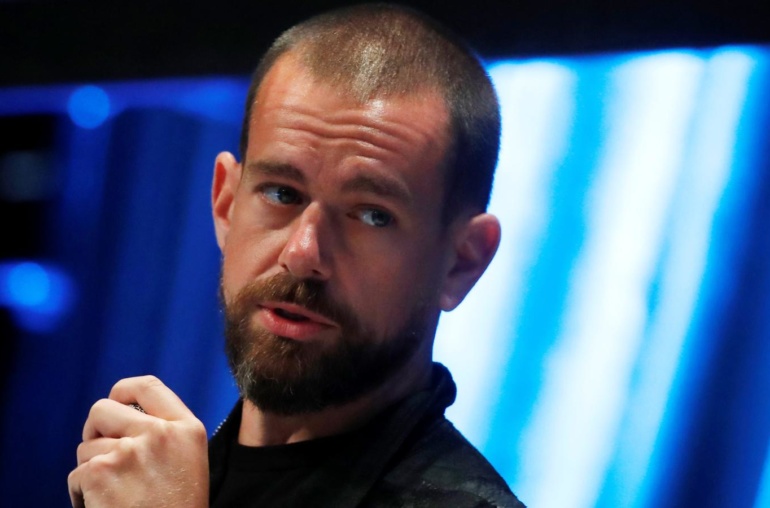Umami Labs CEO Alex O’Donnell grew up on the outskirts of Philadelphia before attending Temple University to study literature and economics. That path led him to devote seven years of his life as a financial journalist at Reuters, where he specialized in M&As IPOs.
He said his academic focus created a “pretty natural synthesis” when it came ot financial journalism. However, he said he became “disenchanted” with his industry while he was cooped up at home during the Covid-19 pandemic. “There really was a three-way alliance between journalists, government officials and technology companies trying to control the flow of information,” O’Donnell said in an interview with Cointelegraph.
He began tinkering with cryptocurrency, which led to his introduction with Umami DAO — and ultimately his creation of Umami Labs.
O’Donnell and his wife, Sanjana, are preparing for a “third, smaller person” to join their family next year. In the meantime, he said he’s also gearing up for another crypto-related venture. The details aren’t fully public yet, but he said he plans to release more information the months ahead.
1) How’d you make the transition from journalism to crypto?
I’d been a journalist for the better part of a decade primarily covering mergers and acquisitions. I always had an interest in finance and tech. But I started becoming a bit disenchanted with the mainstream media around the time of the pandemic. That was the first time I started becoming a bit more cynical about my own industry’s role in the information economy. So I started paying more attention to issues like privacy, censorship and other things I had not taken as much interest in before.
Alex O’Donnell athis wedding in 2023. Photo credit: BR Studio’s Christian Garcia.
In 2020 I spent most of my time covering the Covid-19 pandemic. There really was a three-way alliance between journalists, government officials and technology companies trying to control the flow of information. It wasn’t even that the official line was wrong. It was that dissent was being stifled in the first place. That really peaked my interest in decentralized platforms.
At that point, I started to become meaningfully interested in crypto. Given that I came from financial journalism, decentralized finance (DeFi) in particular caught my interest. I really started actively investing in different crypto protocols as a retail investor in 2021. I was getting more involved in DeFi communities, and one of them was the predecessor to Umami — ZeroTwOhm.
2) How did that lead to you creating Umami Labs?
I got involved in ZeroTwOhm as a regular retail investor aping in as many people did. It was a pretty small community, so I was able to pretty quickly get in contact with the developers building the protocol.
But they didn’t really have a clear sense of direction about what they wanted to do next. They had bootstrapped several millions of dollars in capital that was largely just sitting there. It felt like somebody needed to step in, and the developers were, frankly, more than happy to hand responsibility off to someone else, which ended up being me.
3) What are you focused on now?
What I’m most interested in now is zeroing in on a problem that became very clear to me during my time at Umami. Essentially, as Umami Labs geared up to launch our first product in early 2023, I was meeting with a lot of crypto-focused hedge funds and large individual investors. There was this gaping need for some way to securely earn interest on USDC, USDT, and other stablecoins without having to just completely move off-chain.
Read also
Features
Powers On… Why aren’t more law schools teaching blockchain, DeFi and NFTs?
Features
Crypto critics: Can FUD ever be useful?
I already focused at Umami on developing another product that was designed to generate returns on stablecoins, but the real need is for something that is as secure and boring and reliable as a conventional savings account, but for people who were holding stablecoins on on-chain wallets. There have been forays into that area by other players, but I have yet to see a complete solution to that problem. It takes a combination of having the right regulated entities off-chain and seamless mechanisms for on- and off-ramping on-chain.
That is something I’m personally focused on now. I’m collaborating with some others on developing something, and getting feedback from potential early users. We’ll have more details to share within the next couple of months. But for now, it’s still in the early stages.
4) What do you think will be the biggest crypto trends in 2024?
In my personal opinion, I do think that the high point of the crypto market in 2021 really was the high-water market of this era of very DIY, unregulated, sort of community-run bootstrapped protocols. I think that going in subsequent years, including now, we’re going to see a pretty stark shift in which DeFi stops looking so much like a completely separate ecosystem. It will for all intents and purposes become a subset of TradFi.
Related: Coinbase launches regulated crypto futures services for US retail traders
I don’t think the DeFi versus TradFi distinction is going to last. Obviously, we’re seeing a number of ETFs undergoing the registration process. In the background, major players are obtaining licenses to engage in a wider array of financial activities in the U.S. Coinbase, for example has, registered as a Futures Commission Merchant and also as a Designated Contract Market with the CFTC. That authorizes them to operate an exchange and open accounts within the futures markets. Those will be focus, of course, on Bitcoin and Ether.
Coinbase and Circle are accumulating different components that will allow them to become deeply integrated operators within traditional finance. I think that is very interesting. In parallel to that, you have folks such as Fidelity and Franklin Templeton and BlackRock developing regulated crypto investment products. Franklin Templeton is developing its own tokenized Treasury Bill ETF. It’s pretty clear that will be a source of momentum for the industry over the next several years.
5) What’s the most interesting to you as an investment right now?
Really, the only thing in crypto that I’m interested in as a long-term investment is Ether and its staking and re-staking derivatives. I think we’re still at a point where the vast majority of potential investments in crypto are extremely speculative. The underlying value proposition of the tokens is still unclear. I think ETH is one of the few exceptions. So I do hold ETH, and I’m comfortable with it as a long-term investment.
I’m paying attention to the staking protocols like Lido and Eigen Layer. Eigen allows people to take ETH they’ve already staked and re-stake it to any number of related staking protocols. That very significantly expands the range of activities that can be done trustlessly. I expect to see, over time, a lot of building on top of Eigen and other similar protocols. I think we’ll see a proliferation of investment funds and ETFs that specialize in taking ETH and staking it and re-staking it.
6) What do you think is the main hurdle to mass adoption of blockchain technology?
There needs to be a complete fusion of protocols on the bleeding edge of blockchain, and more established companies that are integrated into the traditional financial sector and capable of operating compliantly from a regulatory perspective. We need to see established players integrating sophisticated smart contracts and taking full advantage of blockchain’s potential. Then we’ll start to see blockchain becoming part of everyday financial transactions and activities.
Subscribe
The most engaging reads in blockchain. Delivered once a
week.
Editorial Staff
Cointelegraph Magazine writers and reporters contributed to this article.



